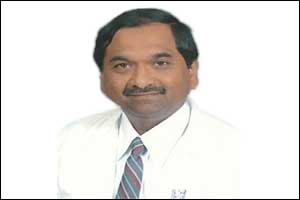- Home
- Editorial
- News
- Practice Guidelines
- Anesthesiology Guidelines
- Cancer Guidelines
- Cardiac Sciences Guidelines
- Critical Care Guidelines
- Dentistry Guidelines
- Dermatology Guidelines
- Diabetes and Endo Guidelines
- Diagnostics Guidelines
- ENT Guidelines
- Featured Practice Guidelines
- Gastroenterology Guidelines
- Geriatrics Guidelines
- Medicine Guidelines
- Nephrology Guidelines
- Neurosciences Guidelines
- Obs and Gynae Guidelines
- Ophthalmology Guidelines
- Orthopaedics Guidelines
- Paediatrics Guidelines
- Psychiatry Guidelines
- Pulmonology Guidelines
- Radiology Guidelines
- Surgery Guidelines
- Urology Guidelines
Pharmaco-invasive treatment- Experience from TN STEMI Program- Dr Thomas Alexander

The TN STEMI program was a The TN-STEMI program was developed as a multicenter prospective study utilising a “pre-implementation/post-implementation,” quasi-experimental study design that was developed as part of a community-based treatment program. In brief, we constructed a ‘hub-and-spoke’ model that was based on 35 primary-care health clinics and small hospitals (spokes), linked to four facilities capable of providing advanced cardiovascular services, including PCI (Hubs).
The Important conclusions from the Pharmaco-invasive subset of the program indicated
Dr Alexander Thomas is an
The Important conclusions from the Pharmaco-invasive subset of the program indicated
- Thrombolysis is the dominant mode of reperfusion in India and will remain so in the foreseeable future
- Streptokinase is the lytic used in over 90% of patients
- The 22% reduction in mortality in the TN STEMI program was predominantly accounted for by the shift in practice from thrombolysis to PI treatment
- Propensity analysis, conducted using Inverse Probability of Treatment Weighting (IPTW) showed that PI treatment using SK had similar mortality to PPCI with no increase in bleeding
- SK-PI in the TN STEMI program, PCI was a median 17.7 hours after lysis, much later than in other studies utilizing 3rd Gen lytics. This and the predominant use of radial route probably explains the safety of this strategy
- Intriguing data from the TN STEMI program shows that in the SK-PI subset, switching to Prasugrel/Ticagrelor in the cath lab prior to PCI and continuing for a year thereafter shows a trend to reduced mortality with no evidence of increase in major bleeds
- Setting up a system of care, reduced symptom to FMC, FMC to ECG and Lysis to PCI. All of which resulted in significant improvement in TIMI flow, reduced thrombus load, reduced readmissions and TVR
Dr Alexander Thomas is an
cardiologistcardiovascularDr Thomas AlexanderECGinvasive treatmentInverse Probability of Treatment WeightingSTEMIThomas AlexanderthrombusTN STEMITVR
Next Story
NO DATA FOUND

Disclaimer: This site is primarily intended for healthcare professionals. Any content/information on this website does not replace the advice of medical and/or health professionals and should not be construed as medical/diagnostic advice/endorsement or prescription. Use of this site is subject to our terms of use, privacy policy, advertisement policy. © 2020 Minerva Medical Treatment Pvt Ltd